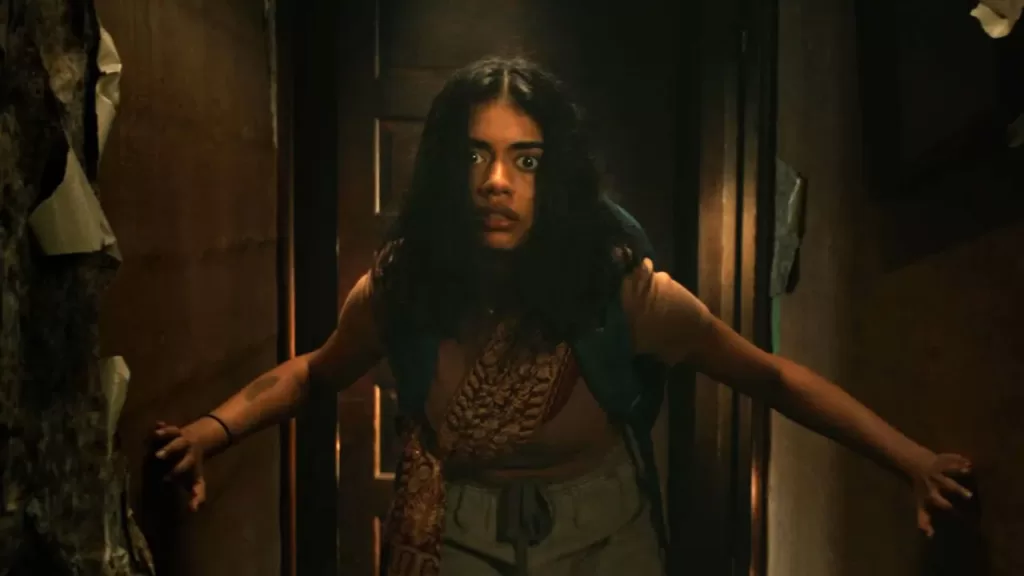As a 25-year-old movie blogger with five years of writing experience, I’ve seen a lot of science fiction films come and go. Some become instant classics, others fade into obscurity. Gareth Edwards’ “The Creator” is an ambitious addition to the genre—an imaginative, visually stunning film that delivers a powerful cinematic experience, even if its storytelling doesn’t quite reach the same heights as its visuals.
Right from the first few frames, “The Creator” pulls you into a future world that’s hauntingly beautiful. If visuals could kill, this film would be lethal. Set in a world torn by war between humans and artificial intelligence, the film explores themes of compassion, identity, and morality—all while grounding its story in intense emotion and spectacular action sequences.
Gareth Edwards, best known for “Rogue One: A Star Wars Story” and “Godzilla” (2014), once again proves he is a master of world-building. The environments in “The Creator” are jaw-dropping—from futuristic cities ravaged by war to peaceful rural landscapes, every scene looks lived-in and meticulously crafted. I found myself marveling at the design choices, wishing the film had been a series instead of a single installment. There’s simply so much to explore here.
Plot Summary: Not New, But Rich with Emotion
At the center of the story is Joshua (played by John David Washington), a special forces operative assigned to find and eliminate a mysterious weapon that could end the war. But when he discovers that this weapon is actually a child-like AI named Alphie (played by Madeleine Yuna Voyles), his mission takes an unexpected turn. Joshua is haunted by the disappearance of his wife Maya (Gemma Chan), believed to be aligned with AI rebels. Alphie stirs a long-lost sense of humanity in Joshua, challenging his beliefs and drawing him deeper into a conflict that no longer seems so black and white.
On paper, the plot may not sound revolutionary—it’s reminiscent of classics like “Terminator,” “Blade Runner,” and even “The Golden Child”. However, it’s Edwards’ attention to emotional depth and philosophical themes that gives this story a more grounded and poignant feel.
World-Building That Deserves Its Own Franchise
Let me say this: “The Creator” deserves to be experienced on the big screen. The movie’s universe is built with such precision that you can’t help but be immersed. Unlike many CGI-heavy films, which often feel hollow or over-processed, “The Creator” feels organic. The integration of practical effects with digital imagery is seamless. You can tell Edwards worked with a relatively modest budget (reportedly around $80 million), but what he accomplished visually is honestly better than some $200M blockbusters.
Every frame is rich with visual storytelling. You can pause at almost any moment and admire the world crafted on screen. From the towering megastructures to the design of the AI beings—some with partially robotic faces, others looking completely human—it’s all incredibly detailed. The cinematography by Greig Fraser and Oren Soffer is phenomenal, and Hans Zimmer’s score brings the right amount of tension and heart.
Strong Performances, But Familiar Arcs
John David Washington delivers a steady performance as Joshua. While the character doesn’t break new ground narratively, Washington brings gravitas and emotional nuance to the role. He conveys a man torn between duty and compassion, loss and love. His scenes with Madeleine Yuna Voyles, who plays Alphie, are especially touching. Voyles is a revelation. She brings both innocence and wisdom to the role, making Alphie one of the most memorable AI characters in recent memory.
Gemma Chan, Ken Watanabe, and Allison Janney round out a strong supporting cast. Watanabe, in particular, lends quiet strength to his role as an AI ally, but unfortunately, some of these characters are underused. Their motivations and backstories could have benefited from more exploration.
Flawed But Forgivable Storytelling

While the visuals and performances are top-notch, the screenplay is where “The Creator” stumbles. Co-written by Edwards and Chris Weitz, the story lacks nuance in parts. The villainous characters feel a bit one-dimensional, and some of the plot twists are easy to predict. There are moments where the dialogue feels too on-the-nose, spelling out themes instead of letting the audience infer them.
The biggest letdown, in my opinion, is the climax. Without spoiling too much, the final act wraps up a little too conveniently. The emotional payoff is there, but the execution feels like it took the safest route possible. With a world this imaginative, I expected a more daring and thought-provoking resolution. That’s not to say the ending is bad—it’s just not as bold as it could have been.
Themes That Resonate in Today’s AI Age
“The Creator” taps into our current cultural anxieties about AI. It explores how we define life, the fear of losing control to machines, and the ethical consequences of war. At its best, the film asks: Can artificial beings feel? Do they deserve rights? Are they just tools, or are they people too? These questions linger long after the credits roll, making it a conversation-worthy movie.
As someone who blogs regularly about film and tech crossovers, I appreciated how the movie doesn’t try to dumb down its AI themes for mass appeal. Instead, it treats viewers with respect, trusting them to think about the implications of its story.
Should You Watch It? Absolutely—But Temper Expectations
Despite its storytelling flaws, “The Creator” is a compelling sci-fi film that deserves your time. It’s not perfect, but it dares to try something original in an age dominated by sequels, reboots, and superhero fatigue. For that reason alone, I support its success.
Gareth Edwards has shown that great science fiction doesn’t always need a massive budget, just a strong vision and the willingness to take risks. If there’s ever a sequel—or even a prequel—I’ll be first in line.
Enjoyed this post? Discover more movie blogs by clicking here




